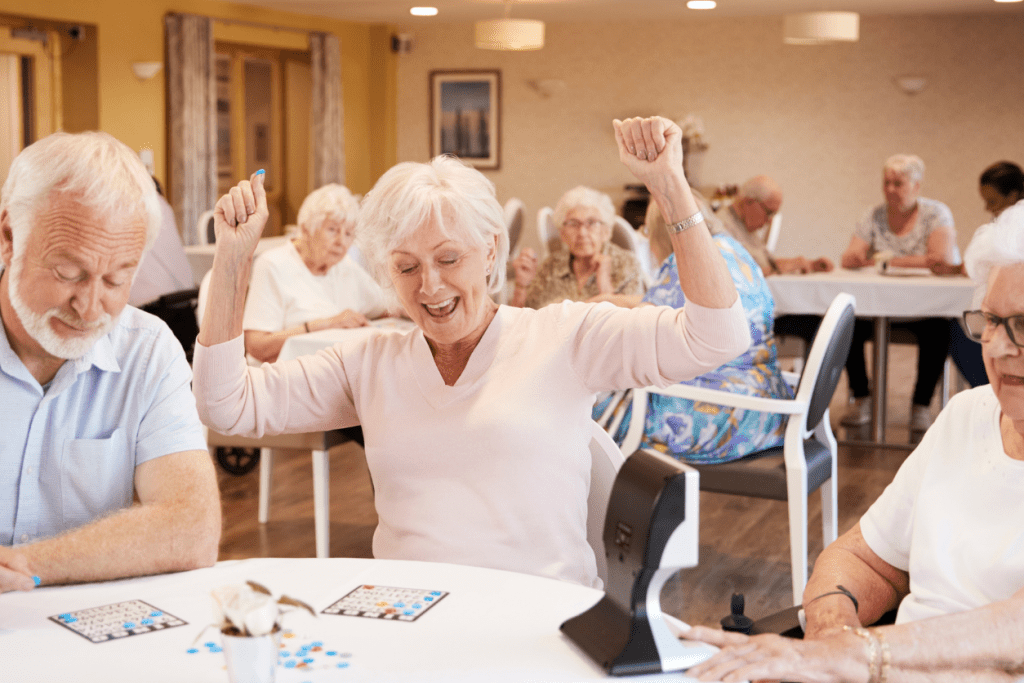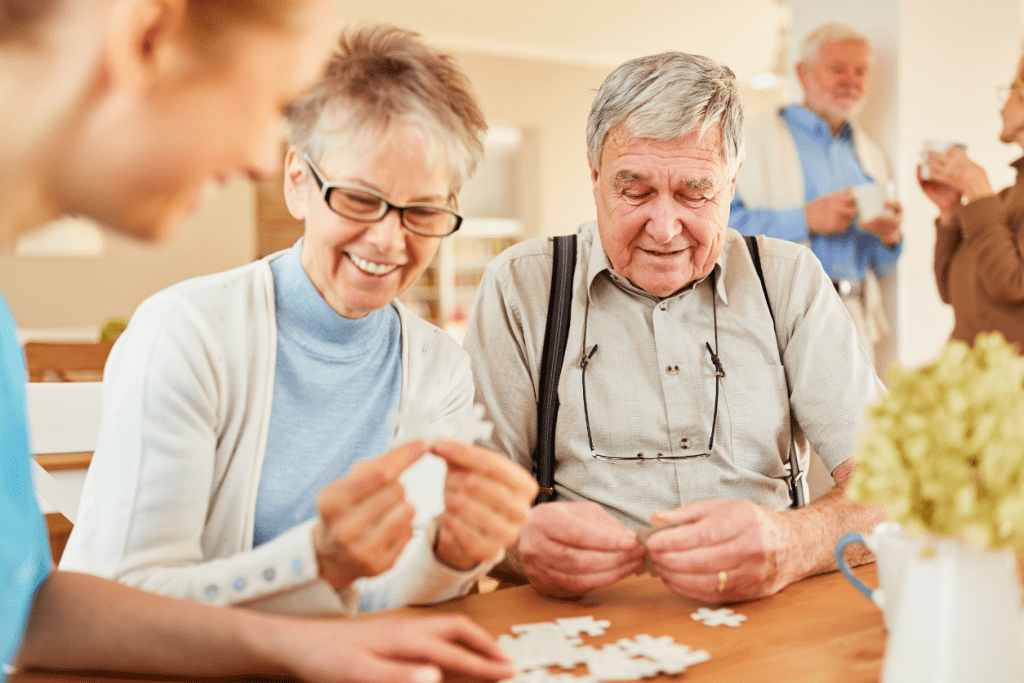How puzzles and games support brain health in seniors with brain injuries

October is a month dedicated to our older Australians living with brain injuries. It’s a time when we highlight their resilience, celebrate their strength, and draw attention to their unique needs and experiences. For seniors recovering from a brain injury, staying mentally active is an important part of the healing process.
Engaging in puzzles, brain games and classic games like Bingo can be more than just a fun activity. They can also help improve brain function, memory and mental agility. Whether working on a crossword game, playing Sudoku or catching up for a social bingo game, these activities are invaluable for supporting brain recovery.
Ways puzzles and games can contribute to brain health
- Enhanced memory and attention: Puzzles and brain games are designed to stimulate different areas of the brain, especially those involved in memory and attention. For older people with brain injury, these are areas often impacted. This leads to problems with recall, focus and multitasking. Games like Sudoku and crosswords, challenge the brain to think critically and recall information which improves memory over time.
- Promoting problem solving skills: Brain injuries can impact a senior’s ability to problem solve and make decisions. Jigsaw puzzles, strategy games and word searches challenge the brain to think critically, consider different options and solve problems. These activities train the brain to pick up patterns and come up with solutions which are all skills that promote brain recovery after an injury. Problem-solving games are shown to boost neuroplasticity which is the brain’s ability to form new neural connections. This aides in recovery and the maintenance of brain function.
- Social interaction through games: Not only do games improve brain health but games like Bingo or board games offer a social aspect that can be beneficial to seniors recovering from brain injury. Social engagement is important for emotional wellbeing and can reduce feelings of isolation, which is common in seniors during recovery. Group games foster a sense of community, help promote communication and stimulate mental activity all in a relaxed and supportive environment. Studies have shown that seniors who participate in social games like Bingo or card games report higher levels of happiness and reduced stress which promotes brain health.
- Emotional well-being: Games and puzzles offer seniors a sense of accomplishment as they compete a challenge. This can lead to reduced anxiety and improve emotional wellbeing. Both common experiences for seniors coping with brain injury. Simple, enjoyable activities like bingo or word puzzles allow seniors to focus on something positive and mentally stimulating, creating a calming effect that benefits both the mind and body.
- Fine motor skills and coordination: For seniors dealing with physical impairments after brain injury, certain puzzles and games can also help improve their fine motor skills and hand-eye coordination. Activities like jigsaw puzzles require moving the small pieces that can rebuild motor skills helping seniors to regain their strength and dexterity.

Here are some great game ideas for seniors to challenge their brain with:
- Bingo
- Crossword puzzles
- Scrabble
- Jigsaw Puzzles
- Memory Games.
Puzzles, brain games, and social activities like bingo are not just fun hobbies. They are also powerful tools for seniors recovering from brain injuries. These activities stimulate brain function, encourage social interaction, and provide emotional support, all of which are critical for healing. Whether it’s playing a daily puzzle or joining a local bingo group, staying mentally engaged can make a world of difference in a senior’s recovery journey.
Synapse provides a variety of services for older Australians impacted by brain injury including information and referral, advocacy services and NDIS support. Our Reconnections Program also provides peer support and networking opportunities for carers and older people impacted by brain injury. Call 1800 673 074 to speak to a member of the Synapse team.
Sources:
- Brain Imaging and Behavior 9, 729–736 (2015). https://link.springer.com/article/10.1007/s11682-014-9329-5
- A Journal on Normal and Dysfunctional Development: https://www.tandfonline.com/doi/abs/10.1080/13825585.2011.621930
- Journal of Geriatric Psychiatry: https://onlinelibrary.wiley.com/doi/10.1002/gps.5085
- National Council on Ageing: https://www.ncoa.org/adviser/hearing-aids/cognitive-health/
- Texas A&M School of Public Health: https://today.tamu.edu/2024/09/10/games-puzzles-and-reading-can-slow-cognitive-decline-in-the-elderly-even-in-those-with-mild-cognitive-impairment/
- IEEE Journal of Translational Engineering in Health and Medicine: https://www.ncbi.nlm.nih.gov/pmc/articles/PMC7279699/